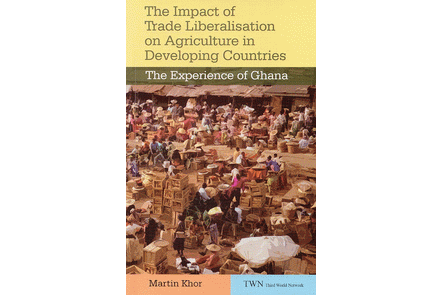Biofuel production is certainly one of the culprits in the current global food crisis. But while the diversion of corn from food to biofuel feedstock has been a factor in food prices shooting up, the more primordial problem has been the conversion of economies that are largely (…)

